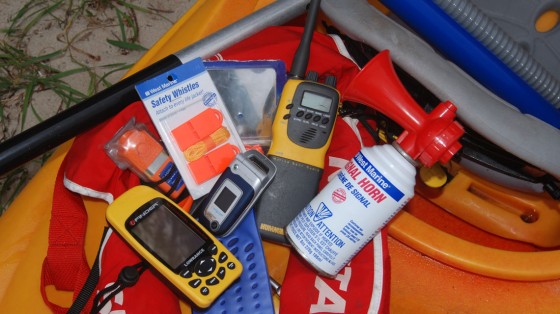Safety Gear to Have on Your Boat

Whether you enjoy cruising or fishing, you likely view boating as a source of fun, carefree times; a chance to relax on the water away from the stresses of daily life. But even on a boat, problems can occasionally arise, from an annoying leak to somebody falling overboard to even an onboard fire. And if you’re unprepared, minor problems on the water can quickly escalate into a dangerous situation.
You can prevent that from happening by making sure you have appropriate safety gear on your boat. Create a safety gear checklist and review it periodically to make sure you’re never caught unprepared. Some onboard safety gear is required by law depending on the state you live in, the size of your boat, body of water you boat is on and other factors. Be sure to check what is required by the Coast Guard and local laws.
Start by making sure you have Coast Guard-approved Personal Flotation Devices (PFDs) onboard your boat. The Coast Guard estimates that 80 percent of boating fatalities could be prevented by people wearing PFDs. Make sure everyone onboard has a PFD that fits them correctly (especially children). You should also have throwable flotation devices immediately available.
Next, any boat with gas or diesel needs to have a fire extinguisher. If you ever need it, you’ll need it fast, so make sure it’s readily available. Routinely check that it hasn’t passed its expiration date and that the indicator needle is still in the green area. You also need both sound and visual signaling devices, such as flares, air horns and whistles. Again, check Coast Guard and local regulations.
While some safety gear might not be required, it’s just smart to have onboard. Chief among these is a first aid kit. If you have an accident on the water, it’s going to take time to get help, so you need to be able to aid yourself or a passenger fast. You also should have a bailer in case of a leak, and a tow line.
A decent tool kit will come in handy if you have any mechanical problems, and it’s smart to keep a supply of spare parts, including fuses, onboard. You need to have a waterproof flashlight (preferably a couple), and you should have communication devices such as a VHF radio and a cell phone. And, if you do get stuck on the water for a while, you’ll want to have spare food and drinking water stashed for just such an occasion.
